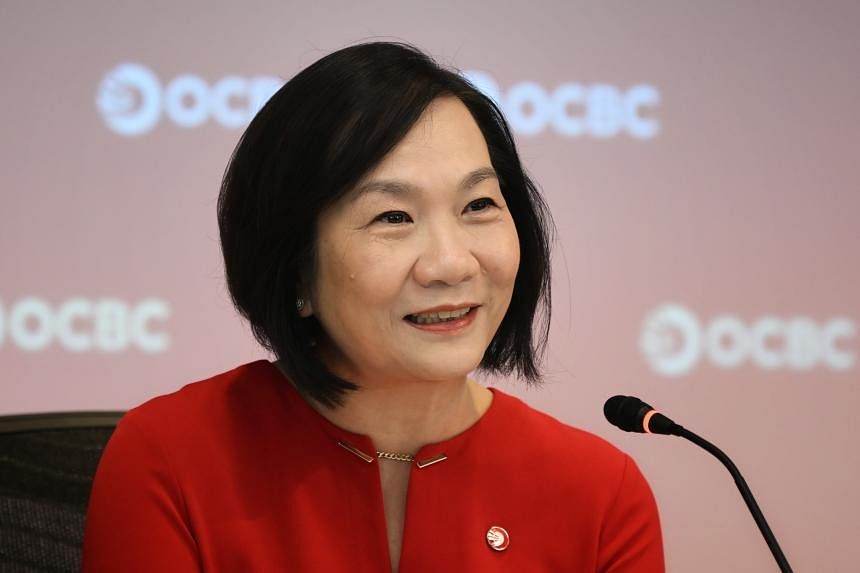- Joined
- Aug 20, 2022
- Messages
- 17,179
- Points
- 113
OCBC chief Helen Wong’s 2023 pay up 8% to $12.1 million

Ms Helen Wong's 2023 overtook that of Piyush Gupta, CEO of Singapore’s largest bank DBS.. PHOTO: ST FILE
SINGAPORE – OCBC Bank group chief executive Helen Wong’s pay rose in 2023 as her bank’s full-year earnings reached a new high, according to disclosures in its annual report released on April 5.
Ms Wong’s annual pay for the year came in at $12.1 million, an 8 per cent increase from the $11.2 million she earned in 2022.
Her remuneration overtook that of Mr Piyush Gupta, CEO of Singapore’s largest bank DBS, who took home $11.2 million in 2023. This was a drop of 27 per cent from the $15.4 million he was paid in 2022.
The 2023 variable compensation for Mr Gupta and other members of DBS’ group management committee was cut to hold them accountable for a series of digital disruptions in the bank’s services in 2023.
The highest paid among the local bank chiefs was UOB’s Mr Wee Ee Cheong with $15.9 million, a 12 per cent increase from the $14.2 million he earned in 2022.
Ms Wong’s annual remuneration comprises a base salary of $1.44 million, unchanged from 2022. She also received a bonus of $6.35 million, deferred shares amounting to $4.24 million and other benefits, such as club and car benefits, worth $69,900.
The increase in her pay was smaller than the 47 per cent salary jump she had in 2022, when her pay of $11.2 million rose from $7.6 million the previous year. Ms Wong was appointed group CEO on April 15, 2021.
Singapore banks’ profit margins are expected to taper off in 2024 as tailwinds from high interest rates fade, and US Federal Reserve rate cuts loom on the horizon.
OCBC’s full-year earnings grew 27 per cent to $7.02 billion in 2023, according to results posted on Feb 28, as its margins increased in its key markets of Singapore, Malaysia, Indonesia and Greater China amid higher interest rates.
This marked the first time its profits crossed the $7 billion mark.
Ms Wong in the annual report said there has been a concentration of trade, investment and wealth flows in Asia.
“Asean-Greater China flows have gained prominence, driven by geopolitical tensions and the emergence of a multipolar world,” she said.
Asean surpassed the European Union as China’s largest trading partner in 2020.
The rise of Asian wealth is also likely to continue, with personal financial assets in the Asia-Pacific expected to grow by an average of about 8 per cent annually over the next five years, compared with the 5 per cent global average.
“There is also a notable wealth flow within Asia, as an increasing number of high-net-worth individuals seek to diversify their assets beyond their countries of residence. Key financial hubs like Singapore and Hong Kong are best placed to benefit from this trend,” said Ms Wong.
OCBC counts Singapore, Malaysia and Indonesia as its core markets in Asean. It also has more than 60 offices and branches in Greater China, comprising mainland China, Hong Kong and Macau.
The lender announced in the fourth quarter of 2023 that it will buy Indonesia’s Bank Commonwealth – a move that will add more than one million retail and small and medium-sized enterprise customers to its network.
It will also acquire Malaysia’s AmMetLife Insurance and AmMetLife Takaful under insurance arm Great Eastern.
In July, OCBC announced a new target to deliver $3 billion in incremental revenue by 2025, on top of its current growth trajectory.
Ms Wong said the bank is “firmly on track” to deliver on this, and will intensify its efforts in 2024 and 2025.
OCBC also exceeded $50 billion in sustainable financing commitments in September, ahead of its 2025 target. In 2023, it recorded more than 100 new sustainable finance transactions, amounting to a total of $14 billion.
